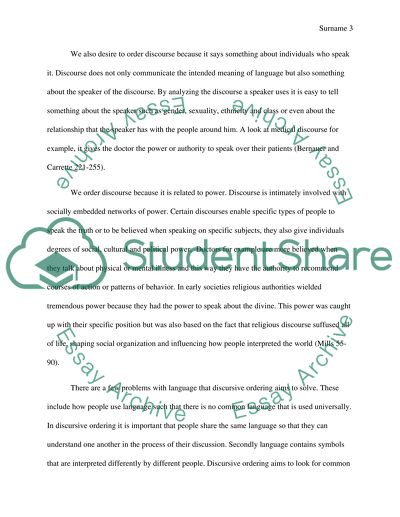Cite this document
(“Ordering Discourse: Ways of Constituting Knowledge Essay”, n.d.)
Ordering Discourse: Ways of Constituting Knowledge Essay. Retrieved from https://studentshare.org/philosophy/1438059-ordering-discourse-ordering-life
Ordering Discourse: Ways of Constituting Knowledge Essay. Retrieved from https://studentshare.org/philosophy/1438059-ordering-discourse-ordering-life
(Ordering Discourse: Ways of Constituting Knowledge Essay)
Ordering Discourse: Ways of Constituting Knowledge Essay. https://studentshare.org/philosophy/1438059-ordering-discourse-ordering-life.
Ordering Discourse: Ways of Constituting Knowledge Essay. https://studentshare.org/philosophy/1438059-ordering-discourse-ordering-life.
“Ordering Discourse: Ways of Constituting Knowledge Essay”, n.d. https://studentshare.org/philosophy/1438059-ordering-discourse-ordering-life.


